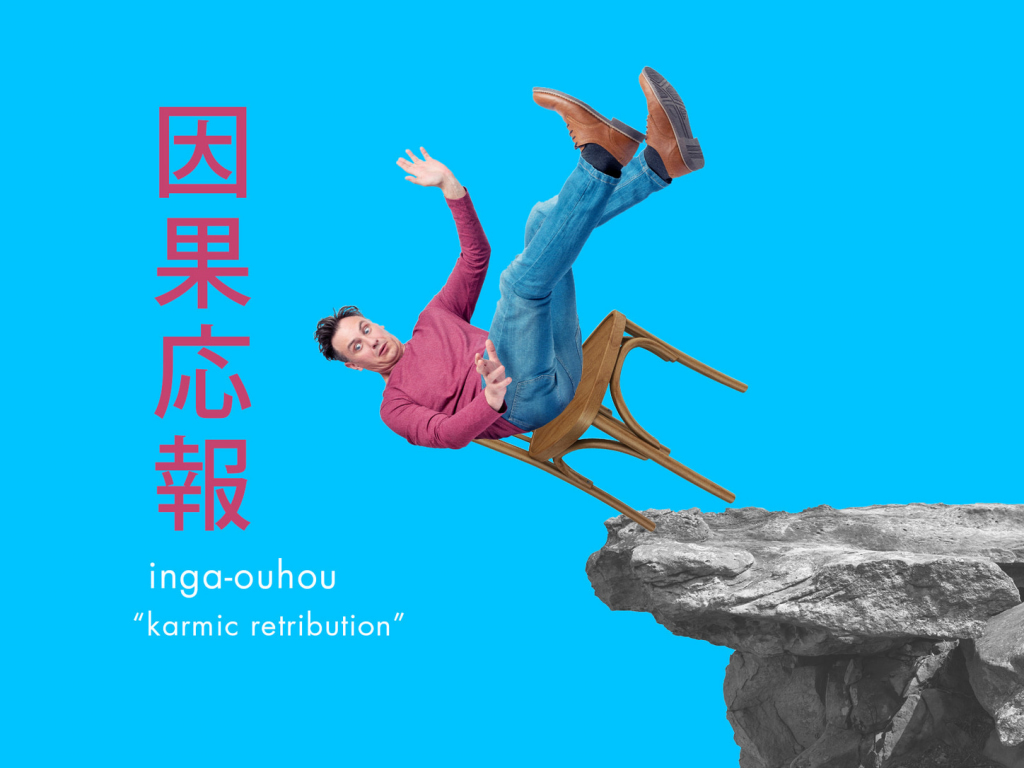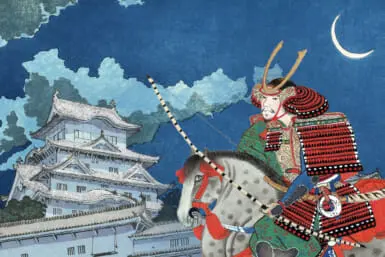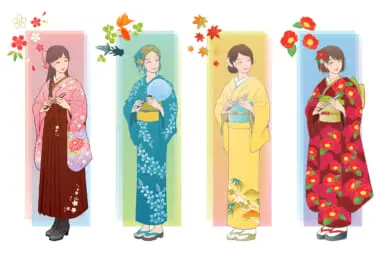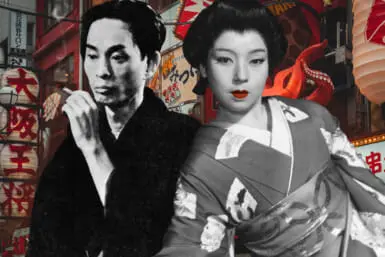There’s nothing like that feeling you get when watching someone who deserves it go down. While schadenfreude isn’t the topic of this week’s four-compound idiom, it’s somewhat close. Inga-ouhou refers to that rare poetic justice that happens too seldom but is oh-so-satisfying to witness. (No misunderstandings — we don’t particularly encourage schadenfreude, but you know…)
Inga-ouhou (因果応報)
Meaning: Karmic retribution, poetic justice, reward and punishment for one’s past behavior, consequences for one’s actions
Literal translation and kanji breakdown: Literally, inga-ouhou breaks down to cause and effect (inga) and retribution (ouhou). If we break down 因果 (inga) further, we can dig deeper into this compound’s true meaning. 因 (In) is extracted from 因縁 (inen; fate, destiny) and also 原因 (genin; origin, source or cause), meaning “the cause of fate.” Paired with 応報 (ouhou), which means retribution, it represents the belief that any actions you take, there will be an equal and equivalent reaction. This can have a positive or negative meaning, but it’s mostly used negatively.
Inga-ouhou: The Origins
Inga-ouhou is a Buddhist term and can be considered an expression meaning karmic retribution. It expresses the belief that life and its reincarnations are due to past deeds in previous lives. While in Buddhist terms, this refers to previous lives’ actions and both positive and negative outcomes, in daily speech the term is a bit more versatile. It’s used for observable past experiences in this life and almost always for something bad.
Inga-ouhou: Similar Expressions
- 悪因悪果 Akuinakka Sow evil acts, reap evil acts; evil acts bring evil outcomes, you reap what you sow.
- 身から出た錆 Mi kara deta sabi Paying for one’s mistakes, reaping what you sow, suffering the consequences (of one’s own actions), you’ve made your bed, now lie in it.
- 自分で蒔いた種 Jibun de maita tane Reaping what you sow; a situation of one’s own doing.
- 自業自得 Jigoujitoku paying for one’s mistakes, etc.
- 「やられたらやり返す。倍返しだ!」”Yararetara yarikaesu. Baigaeshi da!” “If someone hurts me, I’ll get them back twice as hard. “ (In this case) inflicting revenge twice as hurtful as the original misdeed. Popularized by the book and drama series Hanzawa Naoki.
Related Expressions: 善因善果 Zeninzenka Good actions lead to good rewards; one good turn deserves another
Using “inga-ouhou” in a sentence
As mentioned, although inga-ouhou can technically be used for both positive and negative outcomes, it’s almost always used in relation to bad deeds and events.
彼は仕事をサボりすぎて首になったのが因果応報だ。Kare wa shigoto wo saborisugite kubi ni natta no ga inga-ouhou da. He slacked off at work so much that he finally got fired. He got what was coming to him.
彼は昔詐欺師だったって知ってる?その元詐欺師が、この前まさかの詐欺被害にあったらしい!まさに因果応報だね! Kare wa mukashi sagishi datta tte shitteru? Sono moto-sagishi ga, kono mae masaka no sagi higai ni atta rashii! Masa ni inga ouhou dane! Did you know that guy used to be a fraudster? Speaking of which, I heard he got conned last week. Talk about poetic justice!
医者に注意されたにもかかわらず、暴飲暴食を続けて体調を崩したなんて、まさに因果応報だね 。Isha ni chui sareta ni mo kakawarazu, bouinboushoku wo tsudukete taicho wo kuzushita nante, masa ni inga-ouhou dane. I overindulged despited being warned by the doctor and now I feel sick. It’s karmic justice I guess.
Try making your own sentence using inga-ouhou in the comments below!
Want more? Follow our weekly Yojijukugo Japanese Idiom series, published every Friday.









